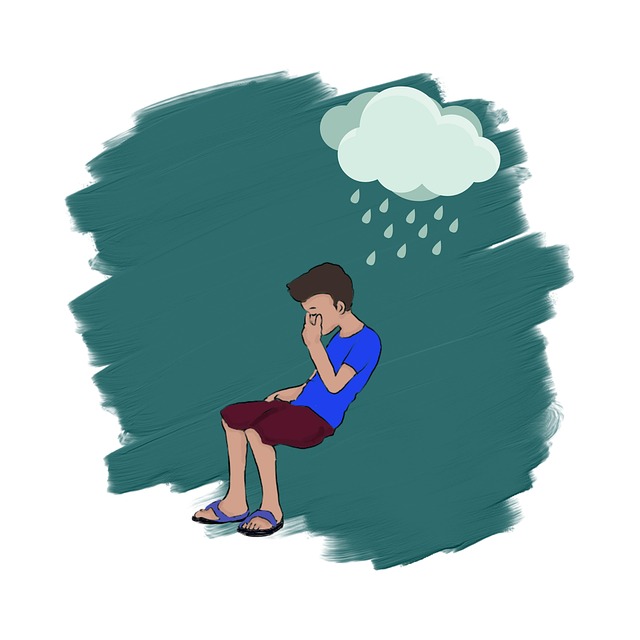Lafayette Polyamorous and Open Relationships Therapy offers specialized crisis intervention focusing on nuanced communication and dynamic relationship dynamics. Through cultural sensitivity, self-awareness exercises, and risk assessments, therapists provide targeted support for jealousy, boundary concerns, and emotional challenges. Effective communication techniques, stress management workshops, and compassion cultivation create safe spaces to enhance self-worth and resilience. The organization also emphasizes resource availability, including post-crisis follow-up services, social skills training, and long-term recovery strategies for positive outcomes in diverse relationship contexts.
In the complex landscape of Lafayette Polyamorous and Open Relationships, crisis intervention is a critical component for fostering emotional well-being. This article explores essential strategies for navigating crises within these unique relationships. We delve into understanding the specific dynamics, enhancing communication, building trust, and providing post-crisis support. By employing evidence-based techniques, individuals and couples can cultivate resilience and strengthen their bonds during challenging times, drawing on Lafayette Polyamorous and Open Relationships Therapy resources.
- Understanding Crisis Intervention in Polyamorous and Open Relationships
- Key Strategies for Effective Communication During Crises
- Building Trust and Safety: Creating a Supportive Environment
- Resource Availability and Post-Crisis Follow-Up Techniques
Understanding Crisis Intervention in Polyamorous and Open Relationships

In the context of Lafayette Polyamorous and Open Relationships Therapy, crisis intervention takes on unique nuances. These relationships often involve complex dynamics and communication patterns that require specialized understanding. Mental health professionals must be adept at navigating sensitive issues such as jealousy, boundaries, and commitment levels, which can arise during a crisis. Incorporating Cultural Sensitivity in Mental Healthcare Practice is crucial when working with polyamorous individuals, who may have diverse cultural backgrounds and perspectives on relationships.
Self-Awareness Exercises can help therapists manage their own biases and emotions while facilitating support for clients. Additionally, thorough Risk Assessment for Mental Health Professionals is essential to identify potential challenges within these relationships. By understanding the unique aspects of polyamorous and open relationships, therapists can offer more effective crisis intervention strategies tailored to address the specific needs and concerns of individuals navigating these complex dynamics.
Key Strategies for Effective Communication During Crises

In moments of crisis, effective communication is a cornerstone for providing adequate support and guidance. At Lafayette Polyamorous and Open Relationships Therapy, we emphasize active listening as a fundamental strategy. Encourage individuals to express their feelings openly while maintaining empathy and understanding. Reflecting on their emotions and validating their experiences can foster trust, making them more receptive to assistance.
Additionally, promoting clear and concise messaging is vital. During high-stress situations, simple language ensures comprehension. Our Stress Management Workshops Organization advocates for this approach, focusing on breaking down complex thoughts into manageable chunks. This technique, combined with non-verbal cues, helps individuals process information better, especially when dealing with intense emotions like anxiety or depression (Depression Prevention).
Building Trust and Safety: Creating a Supportive Environment

In crisis intervention, building trust and fostering a sense of safety is paramount to effective support. This involves creating an environment where individuals feel seen, heard, and understood. At Lafayette Polyamorous and Open Relationships Therapy, we prioritize compassion cultivation practices to help clients develop a deeper sense of self-worth and emotional resilience. By encouraging open communication and actively listening without judgment, our therapists create a space that allows individuals to explore their emotions freely.
This supportive environment facilitates trauma support services tailored to each client’s unique needs. Through self-awareness exercises, we guide individuals in recognizing triggers and developing coping mechanisms. The goal is not just to address the crisis but also to equip clients with long-lasting tools for navigating challenging situations, promoting overall well-being, and enhancing their relationships.
Resource Availability and Post-Crisis Follow-Up Techniques

In crisis intervention, understanding resource availability is paramount. This includes not only access to immediate support services but also the capacity for post-crisis follow-up. Lafayette Polyamorous and Open Relationships Therapy, for instance, offers specialized services tailored to unique relationship dynamics, enhancing emotional intelligence and fostering positive thinking among individuals and couples. Effective crisis interventions often leverage these resources to create a supportive environment, ensuring that those affected have not only immediate relief but also long-term strategies for recovery.
Post-crisis follow-up techniques play a crucial role in preventing recidivism. Social skills training, as part of this process, can help individuals reintegrate into their communities, build healthier relationships, and cultivate resilience. By combining these strategies with emotional intelligence development, individuals are better equipped to navigate future challenges, promoting overall well-being and personal growth.
In the realm of Lafayette Polyamorous and Open Relationships Therapy, crisis intervention strategies are vital tools for fostering resilience and healing. By understanding unique relationship dynamics, implementing effective communication techniques, and creating safe spaces, individuals and couples can navigate crises with support and strength. Resource availability and post-crisis follow-up further enhance recovery, ensuring that those in need receive the necessary guidance and care. Embracing these strategies enables a transformative journey towards lasting well-being within polyamorous and open communities.














